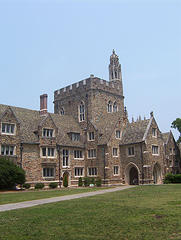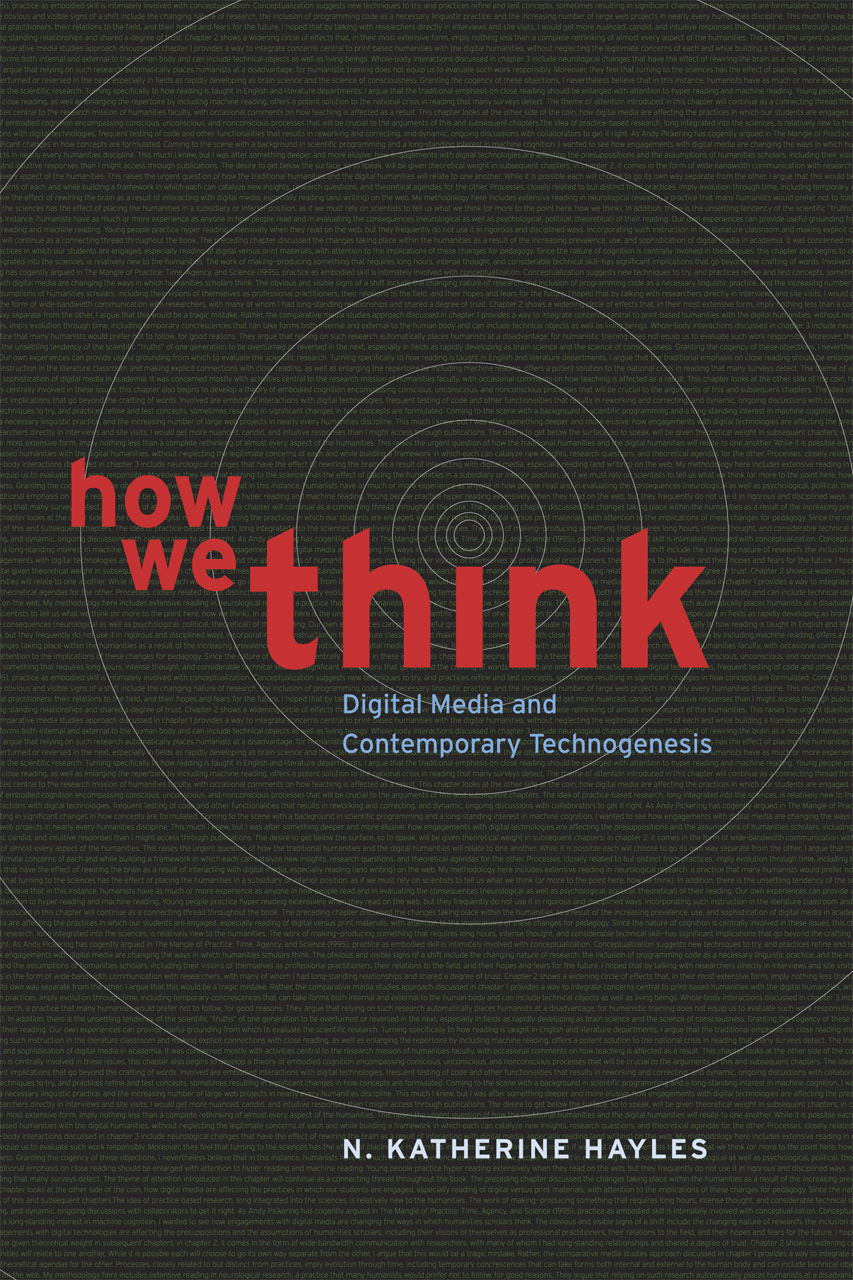Publisher Information
The University of Chicago Press, Chicago 60637
The University of Chicago Press, Ltd., London
© 2012 by The University of Chicago
To understand the broad function of N. Katherine Hayles' book, How We Think: Digital Media and Contemporary Technogenesis, all the reader has to do is read the second sentence of chapter one: “This book explores the proposition that we think through, with, and alongside media” (1). Despite this deceptively simple claim, the reader becomes ensnared in a largely complex, information-driven text that spans a large portion of contemporary thought on digital media and mental processing.
Since she is connecting topics that span from literature to neuroscience, Hayles uses a web of evidence to thread together her major purpose in writing the text, which is “a proof of concept of the potential of comparative Media Studies not only in its arguments but also in the methodologies it instantiates and the interpretive strategies it employs” (17). In other words, her text seeks to show how both traditional literary studies and the digital humanities ought to be bridged with comparative aims – by looking at the advantages of utilizing close, hyper-, and machine reading techniques and attempting to synthesize the data in a meaningful way.
In order to obtain the best understanding and critique of Hayles’ work, the body of this review is split into two different sections. The first, “Synopsis,” critiques and summarizes her central argument and organization, providing chapter briefs in the side bars. The second, “Uses,” pinpoints Hayles’ text to useable professional segments, also including chapter briefs and citation information in the sidebars.
While it is clear to anyone that reads even the first chapter of her book, Hayles is a hefty scholar, the intent of this review is to examine the nuts and bolts of the book – challenging her many claims to what it is supposed to achieve, keeping in mind her notes at the end of chapter one: “my title is as much an open-ended question as an assertion or claim” (18). Therefore, this review is challenged to ask whether or not the open-ended question Hayles leaves the reader with is truely useful to the scholarship it covers.
About the Author

*Image by Matt Philips, presented in small scale."duke: part 2."
N. Katherine Hayles is a professor of literature at Duke University, where her work in the digital humanities and technology has made a significant mark on contemporary critical theory. Earning several honors, including two significant lifetime achievement awards, she has a plethora of publications including five books.
